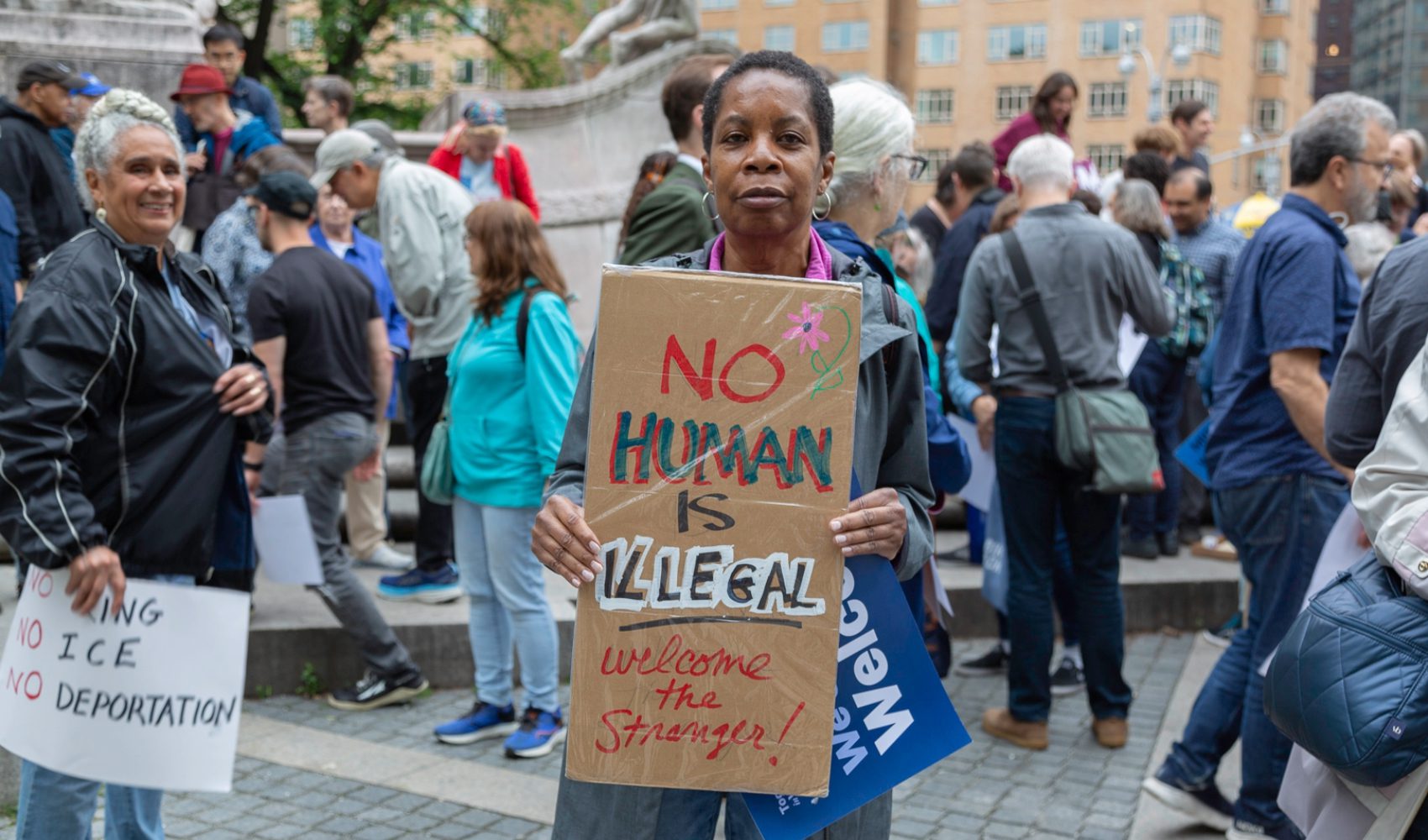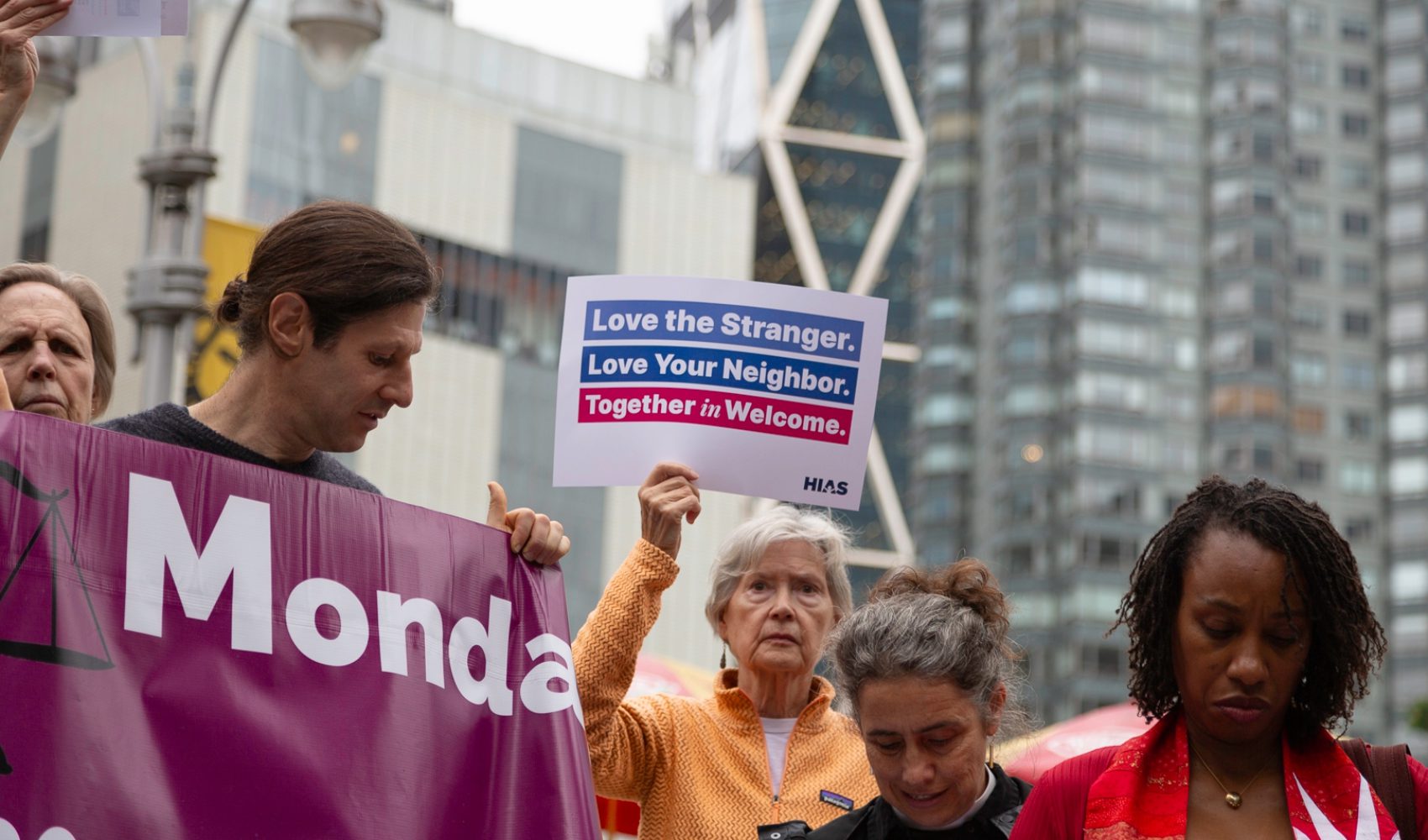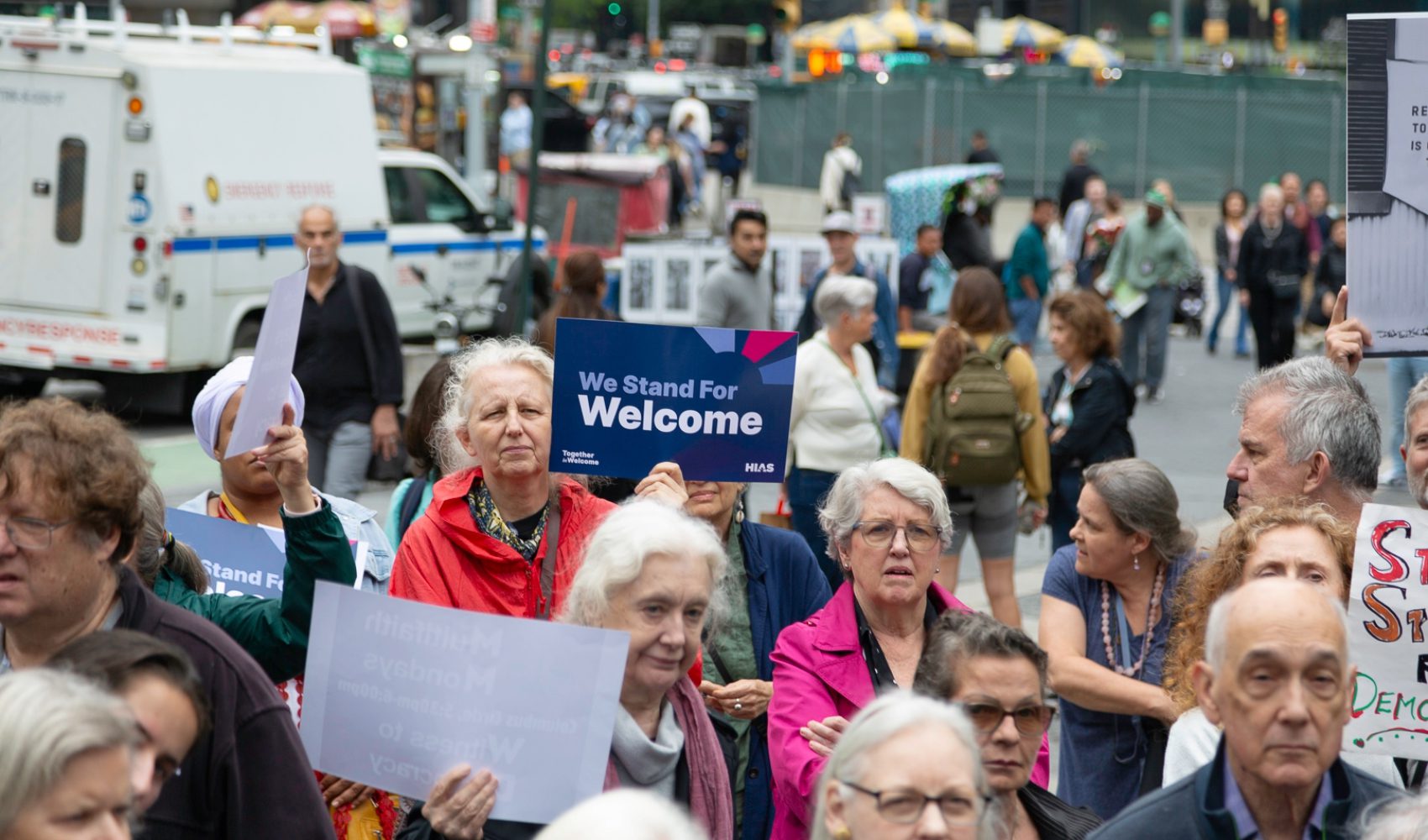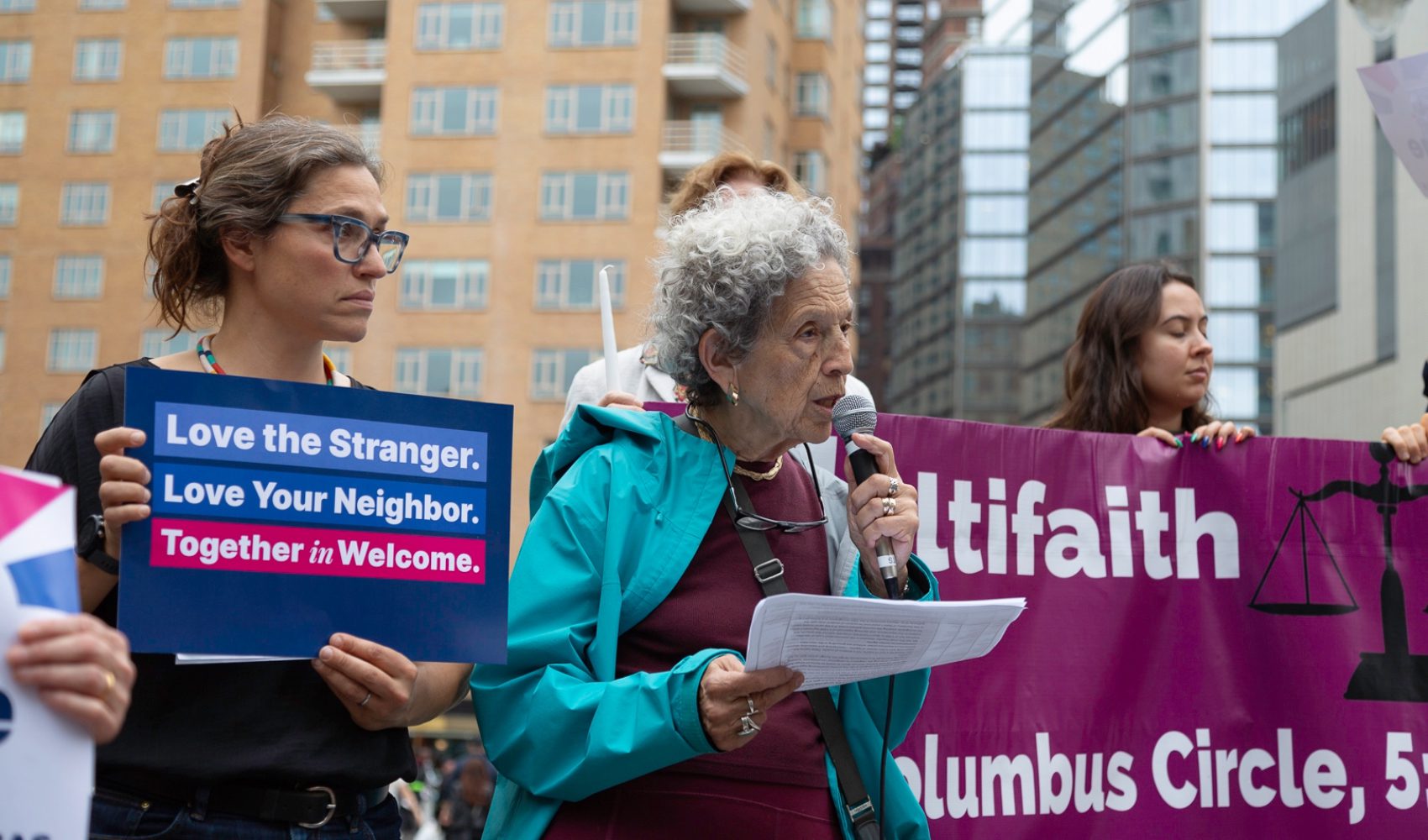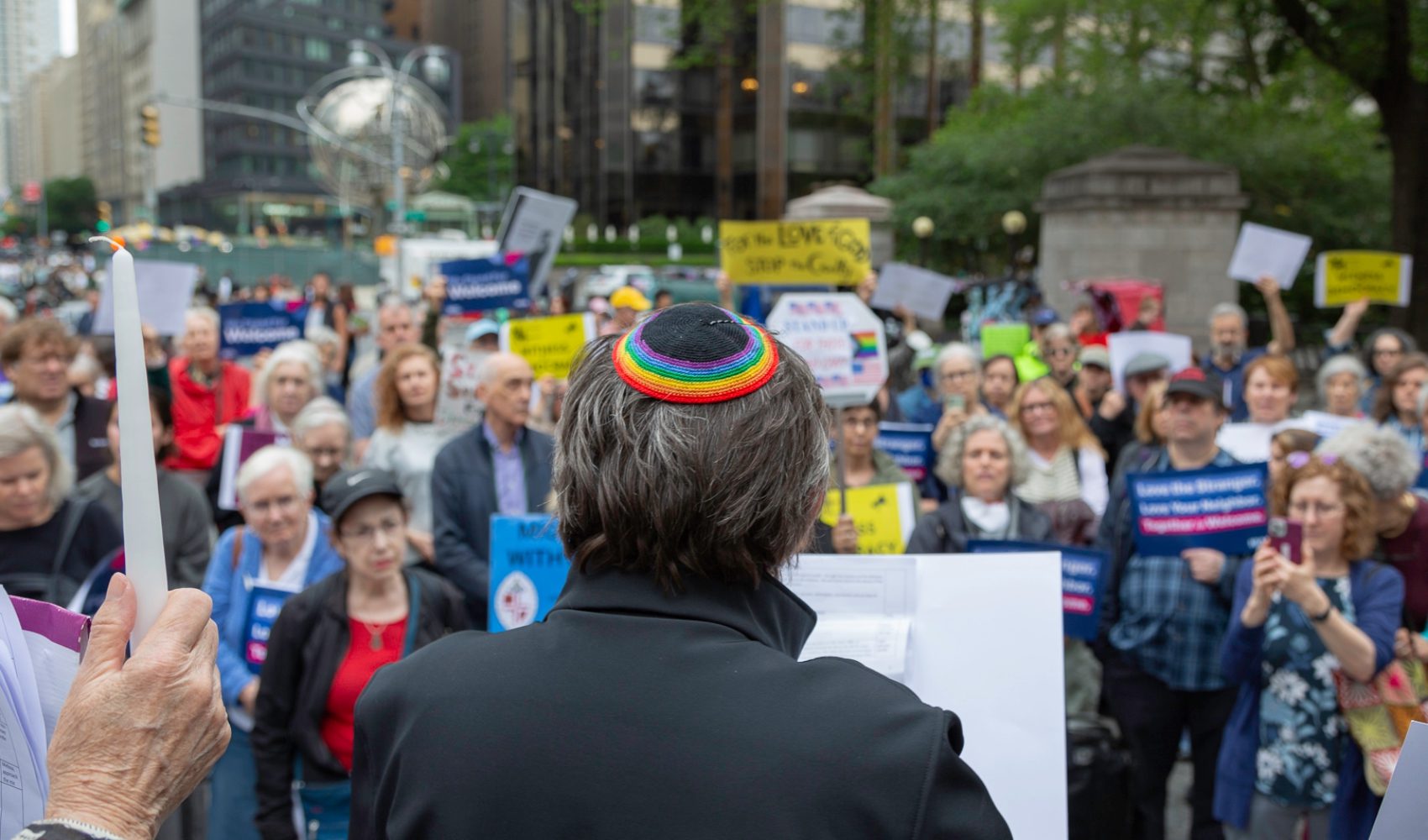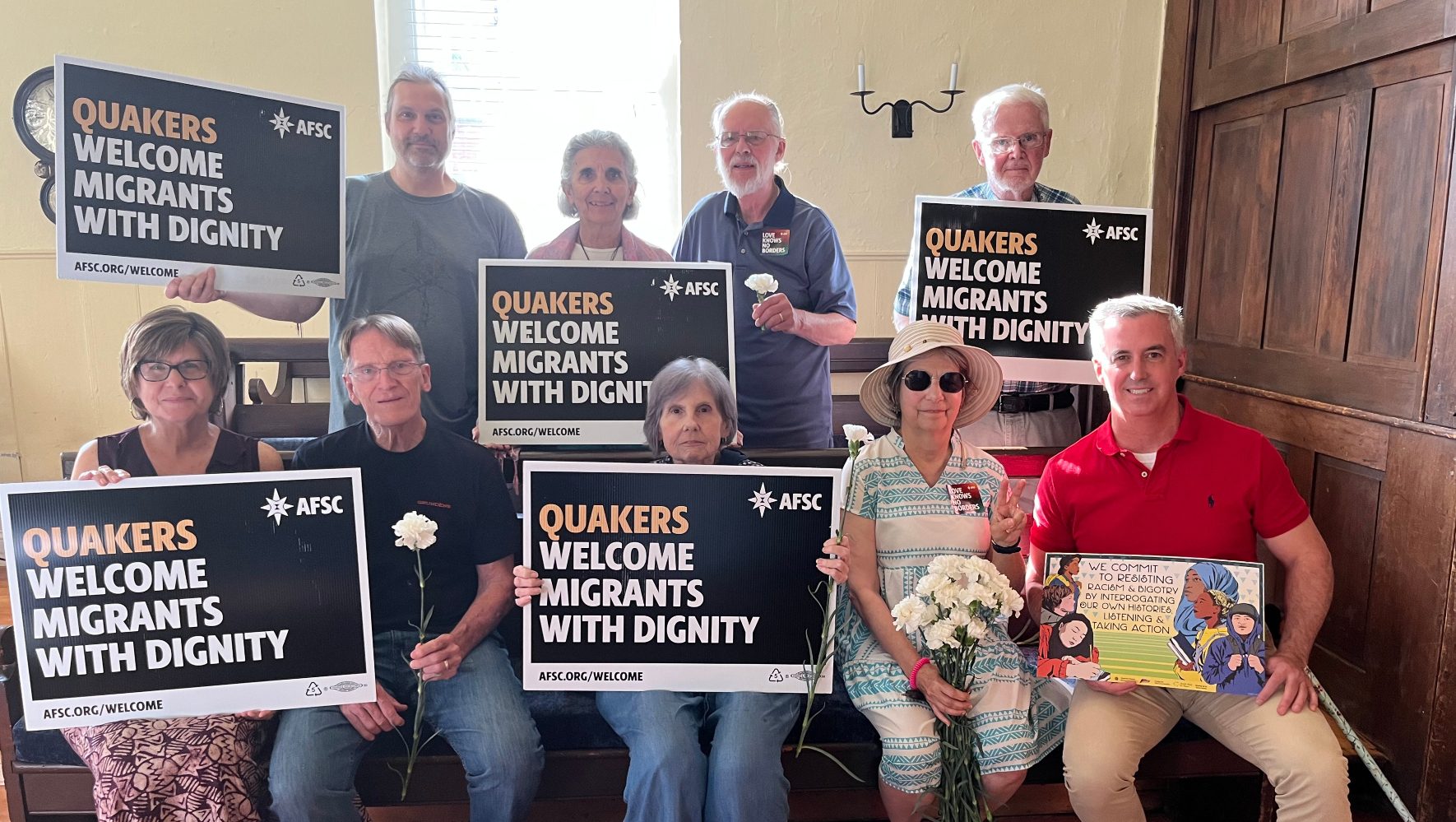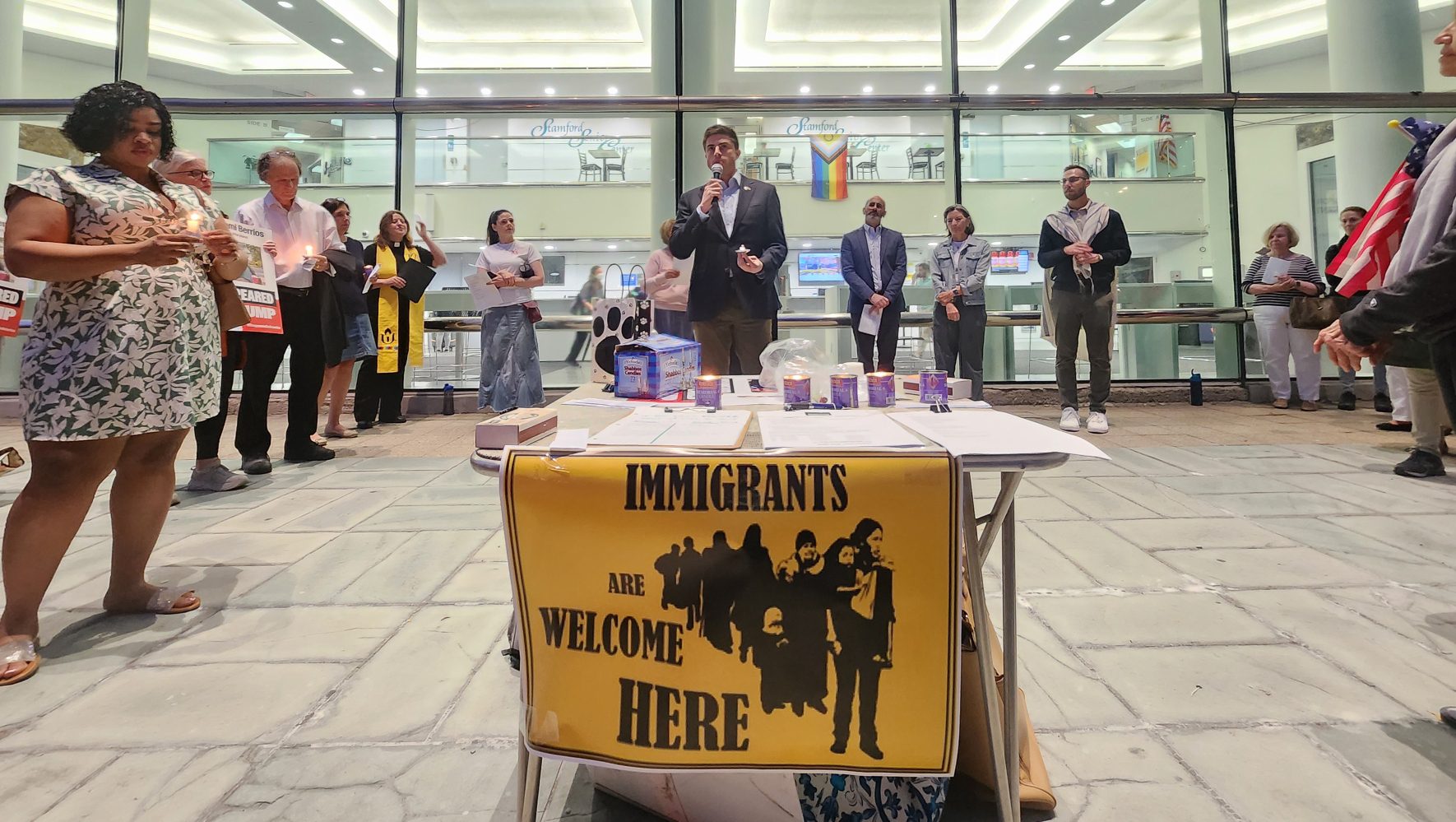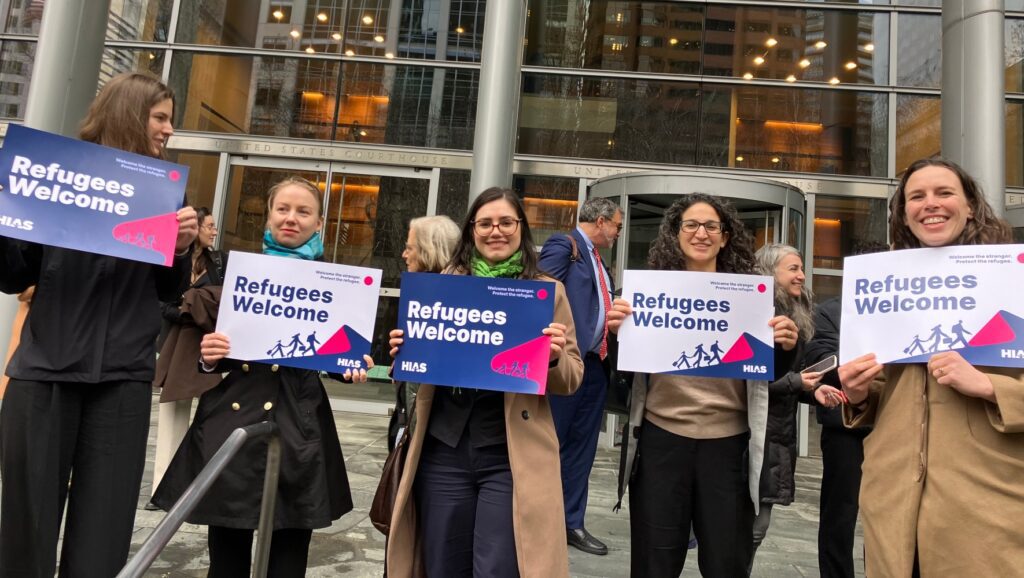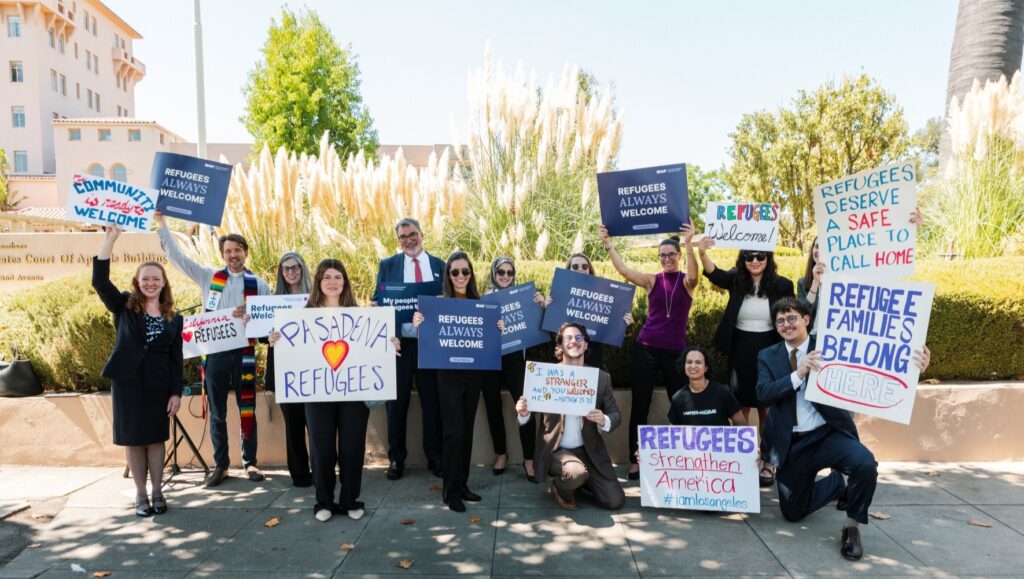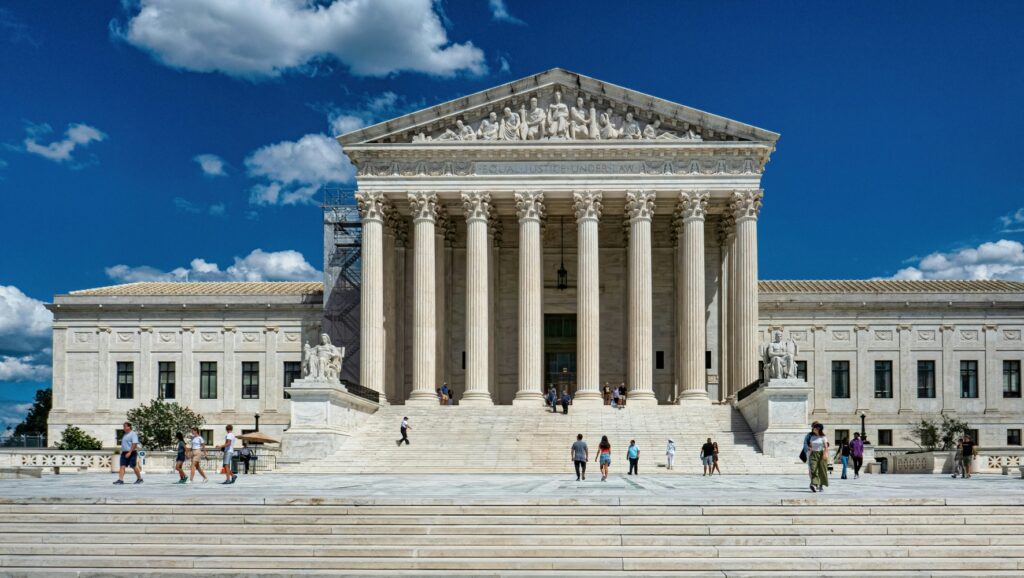How can one not be overwhelmed by the fast and furious assault on the rights of refugees, immigrants, and asylum seekers from the first moments the Trump administration took office? The attacks undermined the basic fabric of American values and identity: halting refugee admissions, cutting off the ability to request asylum at the border, stripping hundreds of thousands of people of their legal status, indiscriminately rounding up immigrants, renditioning detainees to foreign prisons without due process, and decimating life-saving foreign aid.
For those of us for whom a culture of welcome is core to our identity as Americans, this onslaught has been equal parts dismaying and dizzying. The changes since January 20 have felt unprecedented to us because, well, they are — at least in our lifetime. During these past few months, in countless conversations with clergy and volunteer leaders, I’ve heard the same phrase uttered again and again: “I just don’t know what to do.”
But what felt new to so many of us is not new to HIAS. As the oldest refugee organization in the world, witnessing more than 120 years of highs and lows in our cultural embrace of immigrants, HIAS has an organizational memory that extends well beyond the perspective of our lifespans.
HIAS has weathered waves of xenophobia and nativism. And we know that they will not last forever. But we need to tap into our values and resolve to begin to climb out of this abyss together.
Give today
To meet this moment, HIAS created a monthlong series of vigils united around a simple theme: “Together in Welcome.” In cities and towns across the country, people gathered to speak out against the Trump administration’s assault on these core American values and demonstrate our commitment to those who seek refuge in our midst. Taking place between June 6 and July 6 — the respective dates on which the MS St Louis was turned away from U.S. shores filled with Jewish refugees in 1939 and the Alien Enemies Act was signed into law in 1798, the vigils acknowledged moments when policies and laws were used to justify the deprivation of civil rights.
When leaders weaponize law and bureaucracy against those seeking safety, we carry the moral weight of what happens to those refused entry — from the refugees on the St. Louis sent into the hands of Nazis, to modern-day refugees who have not been able to come to the U.S. because of the Trump administration’s halt of resettlement of vulnerable populations from around the world. The historical blemishes echo painfully loud in our ears today. But there is a power in publicly shining light on past moments that have brought us collective shame. It reminds us that this is not who we want to be — that this is not who we have to be. It inspires us to start climbing out of this abyss.
From the moment HIAS announced plans for the vigils, it was clear that people were yearning to declare their commitment to an American culture of welcome. More than 20 national partners across faith communities came forward to support the effort. More than 20 vigils have taken place in 14 different states, and there are more still being planned for well beyond the originally envisioned month. Most have been multi-faith events, happening in partnerships across synagogues, churches, mosques, mutual aid groups, faith-rooted activist coalitions, sanctuary networks, and many other combinations of local organizing bodies.
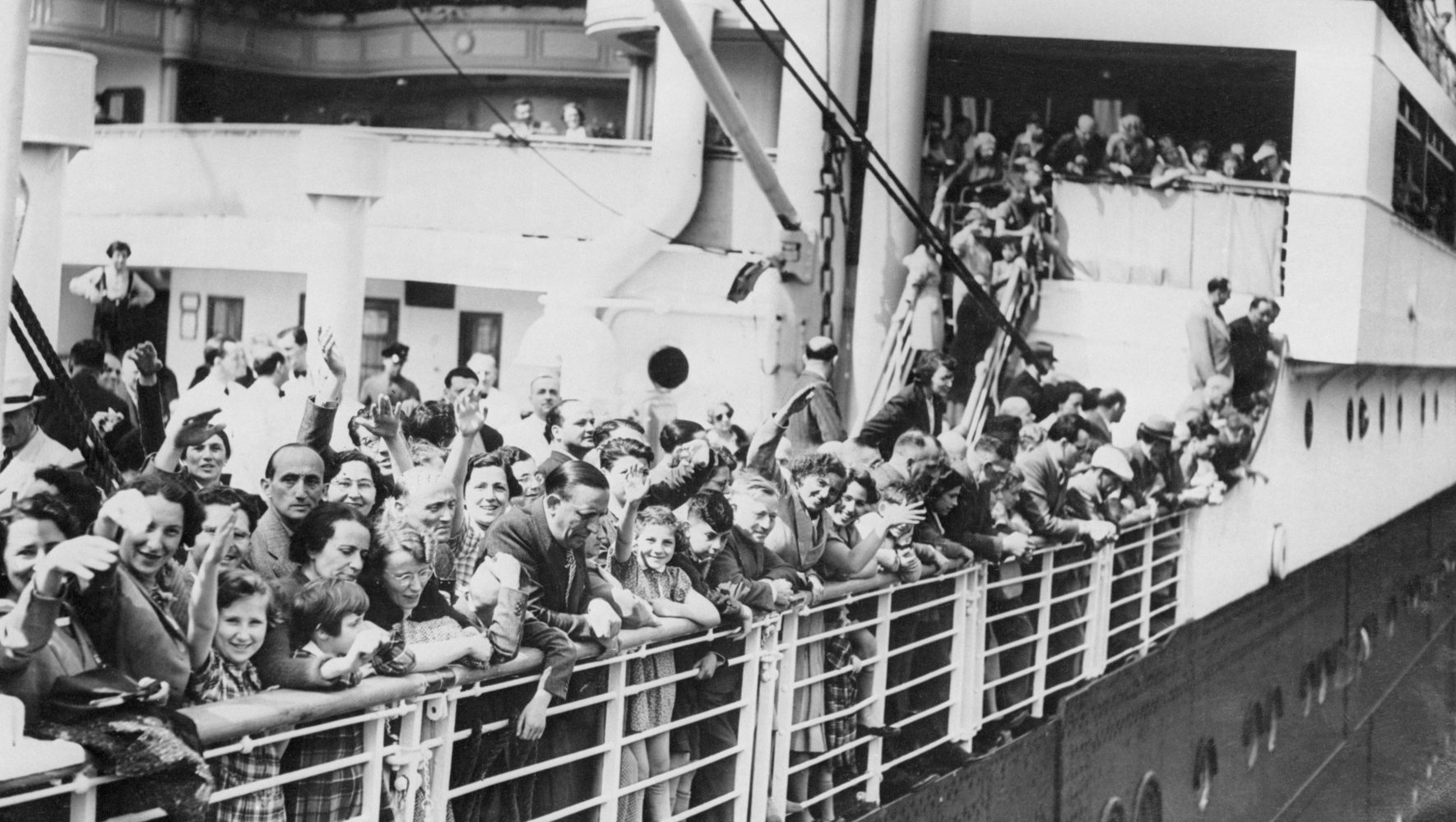
The Shameful Lesson of the ‘St. Louis’ is as Relevant as Ever
Read MoreWe are not naïve. A vigil will not solve the deluge of crises that face advocate for immigrants, refugees and asylum seekers. But it is not an empty performance either. The vigils mattered, as did the voices they uplifted. It has gained traction for people wanting to unite around a shared vision for our country rooted in shared values of humanity.
Believing that we are powerless makes us so. Vigils like those that took place as part of HIAS’ Together in Welcome initiative represent a first step for many toward breaking our sense of disorientation and finding a way to regroup. They are a first response to the declaration of “I don’t know what to do.” They have bolstered existing coalitions and forged new connections. They have pressured public officials and laid the groundwork for local communities to better support their neighbors under threat. They pave the way for more.
The more we hold the public moral voice and declare that we refuse to dwell in depths of historical shame, the more we own our own agency and constrain the powers that work against these values.
These past months have been devastating. And the months and years ahead will not be easy. But as we have learned from history, the depravity of this moment does not have to define who we will be tomorrow. Today — and tomorrow — we will stand together in welcome.
